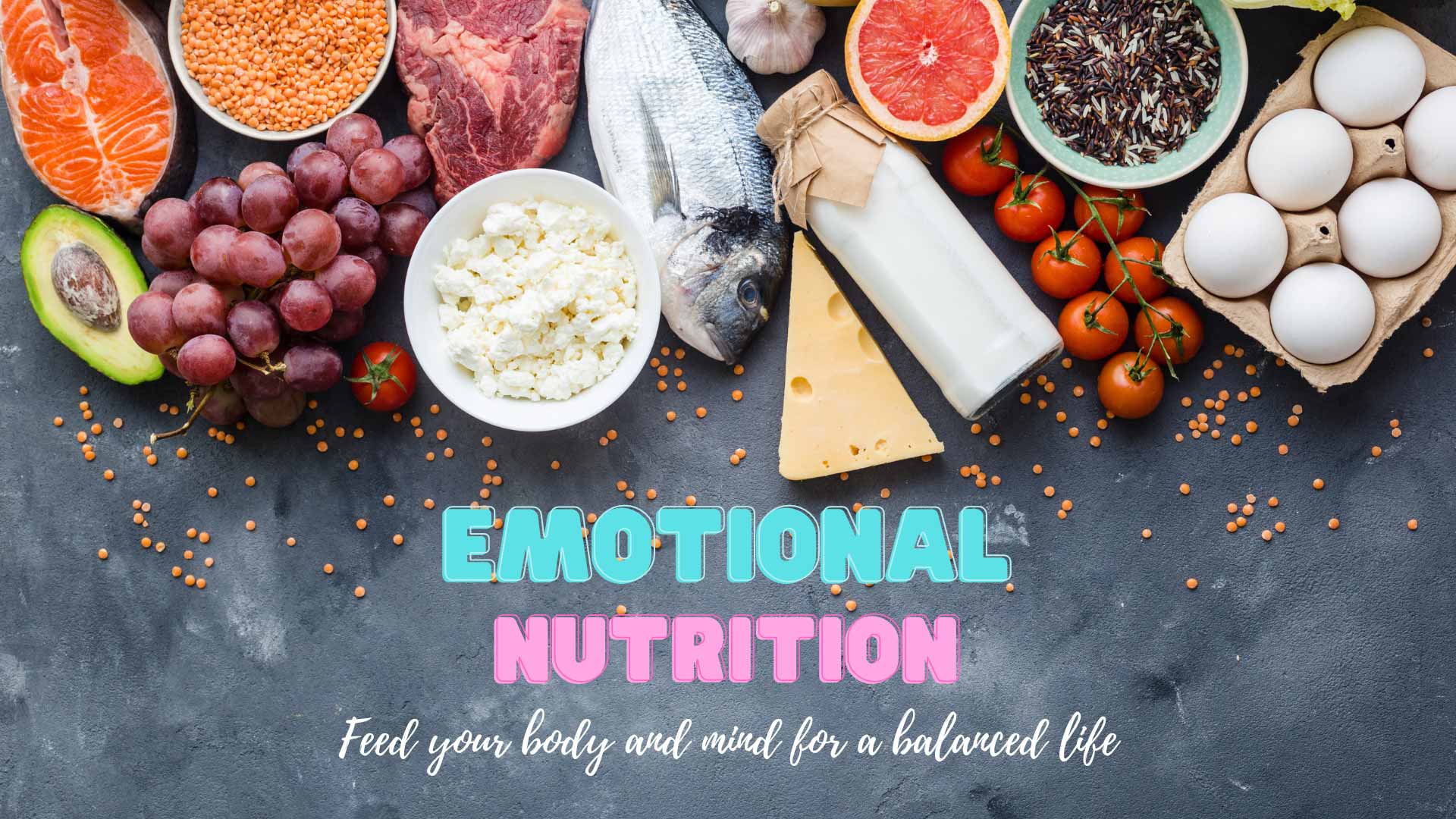Emotional Nutrition: feed your body and mind for a balanced life

In today’s society, a lot of emphasis has been placed on the importance of healthy eating to maintain a fit body and prevent disease. However, there is an equally relevant but often overlooked aspect: emotional nutrition.
Our mind and our emotions also require adequate care and nutrition to achieve comprehensive well-being. In this blog post, we’ll explore the connection between eating and emotions, and how we can emotionally nourish ourselves for a balanced and fulfilling life.
The link between food and emotions
Many of us have experienced the connection between what we eat and how we feel. A comforting bite can brighten our day, while a heavy meal can leave us sleepy and cranky. This relationship is not mere coincidence; there is a scientific basis behind it.
Our nervous system and our hormones play a crucial role in how we process food and how it affects our emotions.
Serotonin, often known as the “happiness hormone,” is a neurotransmitter that regulates mood and emotional well-being. Surprisingly, much of the serotonin is produced in the gastrointestinal tract. Therefore, a balanced and healthy diet is essential to maintain optimal serotonin levels and promote positive emotions.
Emotional nutrition: practical advice to feed your well-being
- Balance your meals: Include a variety of foods in your diet, such as fresh fruits and vegetables, lean protein, and healthy fats, such as extra virgin olive oil. These nutrients are essential for proper brain function and neurotransmitter production.
- Consume foods rich in tryptophan: Tryptophan is a precursor amino acid for serotonin. Foods such as bananas, nuts, seeds, turkey, chicken, oily fish, eggs, and dairy contain tryptophan and can help increase serotonin levels.
- Avoid processed foods and excess sugar: Foods high in refined sugars and trans fats can cause wild fluctuations in blood sugar levels, which negatively affects mood and can lead to negative emotions.
- Practice mindful eating: Pay attention to your emotions and the signs of hunger and satiety. Mindful eating allows you to connect with your emotional and physical needs, and helps you make healthier food choices.
- Find healthy ways to manage stress: Chronic stress can have a significant impact on our emotions and our eating habits. Look for relaxation techniques that help you reduce stress, such as meditation, regular exercise, or creative activities.
- Seek emotional support: It’s not just about the food you eat, but also about the relationships and emotional support you have in your life. Nurture positive connections with friends, family, or health professionals who can provide you with the support you need.
Conclusion
Emotional nutrition is a fundamental part of our general well-being. Feeding our body and mind in a balanced way allows us to develop a healthier relationship with food, regulate our emotions and promote a positive state of mind. By adopting mindful eating practices and making informed nutritional choices, we can nourish ourselves emotionally and achieve a balanced and fulfilling life.
Remember that every choice you make on your plate is an opportunity to feed your body and nurture your emotional well-being.

